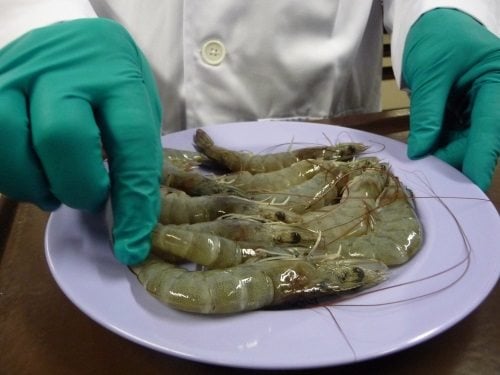A sharp rise in Oxytetracyclines residues within Asian seafood products has coincided with the development of a brand new test for the antimicrobial agent.
Validated for both seafood and honey, Randox Food Diagnostics is offering an enzyme-linked immunosorbent assay or ELISA test for Oxytetracyclines following a spate of import refusals for shrimp and other aquaculture products in the US.
Oxytetracycline is one of the most common antibiotics used in aquaculture.
In June 2014, the US Food and Drug Administration turned away 126 entry lines of seafood products, and 25 were shrimp shipments refused due to contamination with banned veterinary drugs.
This represented the highest monthly figure of shrimp entry lines refused for antibiotic contamination since February 2011.
This problem has been on the increase, with 2012 seeing 53 entry lines of shrimp refused for antibiotic contamination, whilst in 2013 the equivalent figure was 73.
In recent years, Tetracyclines have been used in apiculture for the treatment of bacterial brood infections that could result in the presence of residues in honey.
“Buying trends over the last few years show that Oxytetracyclines are becoming an ever more popular variant within the drug class,” says global business manager David Ferguson.
The system has a “sensitivity of 3.92ppb for honey and 20ppb for fish and shrimp tissue”.
Story by Susan Draine of Randox Food Diagnostics.










